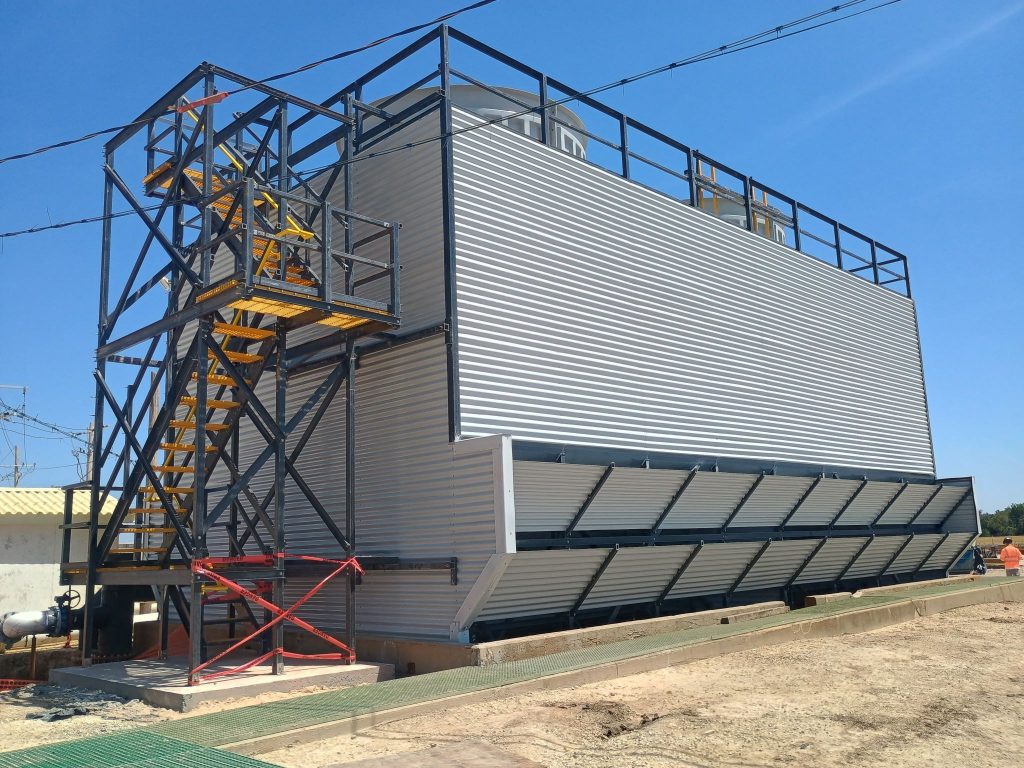Effect of Wet Bulb Temperature (WBT) and Dry Bulb Temperature (DBT) on Cooling Tower Performance
Cooling towers rely on evaporative cooling, making wet bulb temperature (WBT) and dry bulb temperature (DBT) critical factors in their efficiency and design. Here’s how they impact cooling tower operation:
1. Wet Bulb Temperature (WBT) – The Key Driver
What it Represents
- WBT is the lowest temperature achievable by evaporative cooling (when air is 100% saturated).
- Cooling towers cannot cool water below WBT (theoretical limit).
Impact on Cooling Tower Performance
| Factor | Effect |
| Cooling Efficiency | Lower WBT = Better cooling (larger temperature drop possible). |
| Approach Temperature | Approach = Cold Water Temp – WBT. • Smaller approach (3–5°C) = More efficient but requires a larger tower. • Larger approach (7–10°C) = Less efficient but smaller tower. |
| Tower Sizing | High WBT regions (e.g., coastal areas) need bigger towers for the same heat rejection. |
| Energy Consumption | Higher WBT = Fans/motors work harder to achieve cooling. |
